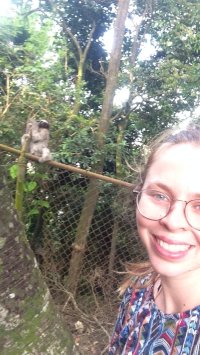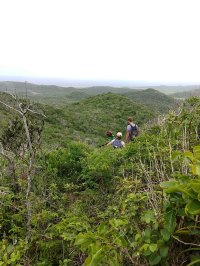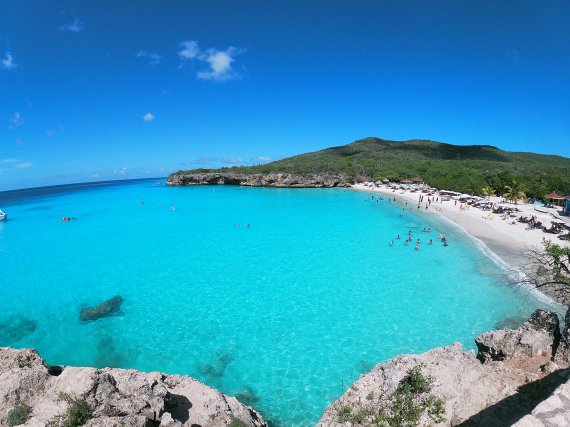Text: Eva van der Graaf
‘I am used to being away from home for a longish period. When I was 20 I came to university in the Netherlands from Germany and I spent six months in Portugal on an Erasmus exchange. During my four-month internship in Curaçao I made a vegetation map of the Christoffel Park, with two other Wageningen students. We researched what plants grew there and how the species composition has developed over the past 30 years.
Everything together

I hardly knew the other two students at all. We had literally met once in the Netherlands. But from the moment they picked me up at the airport – they had arrived a week earlier – we did everything together. Working, cooking, having fun at the weekend. We lived together in one house too. That was intense, but nice: you get to know each other really well. You see each other’s ups and downs, especially during the fieldwork.
The research institute where we did our internship, Carmabi, is mainly known for its marine biology, so I learned a lot about the island’s aquatic ecosystem. In our spare time we did a lot with the other students at the research institute and the staff at the diving shop, where I got my open water diving badge. Most of them were Dutch. I was glad we were working with a Curaçaoan in the laboratory. I had nice discussions with her about Curaçaoan culture and the differences between Germany, the Netherlands and Curaçao.

Colonial past
We shared a car. We had to drive half an hour to get to the park to do our fieldwork every day. That was pretty much the other side of the island. We went to a different beach every weekend. And once I took the bus. I didn’t know exactly where I was meant to be, but everyone was very helpful. In the end the bus driver dropped me off almost outside my house.
You have to know a bit about the history of Curaçao to understand its present-day culture. Of course I know Curaçao was a Dutch colony, but I hadn’t really given it much thought beforehand. Once I was there, I began to understand it better. There are still tensions. People in Curaçao often think the Dutch get too uptight and come and tell them how they should do things. Whereas the Dutch often think people in Curaçao are too relaxed. I think they both have a point.’

